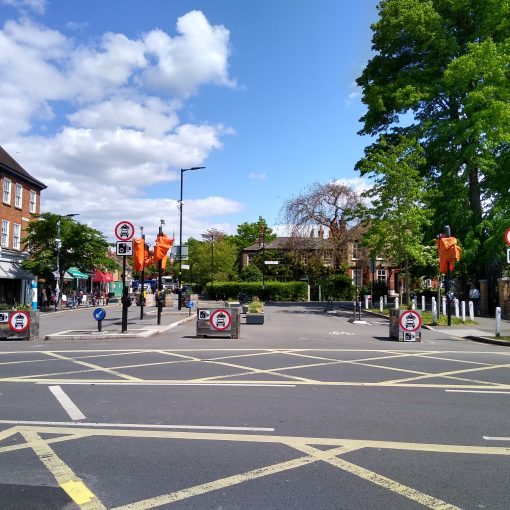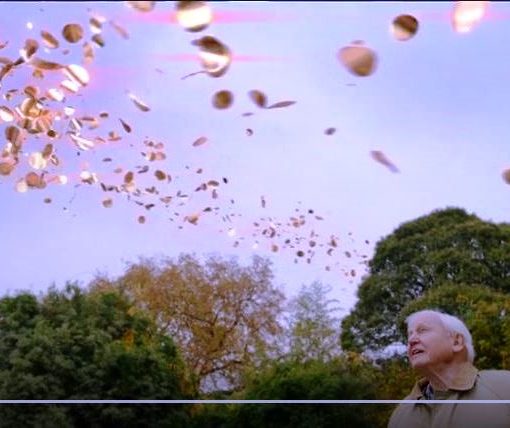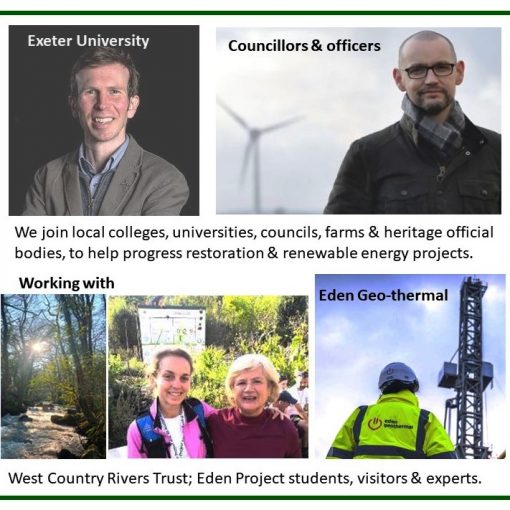7th OCTOBER 2022
Today is about transport:- A Green Adventure on buses & trains, a survey of hybrid vs fully electric vehicles and robot cars in San Francisco.
Ever since Monday, it’s been mayhem! 2 grant applications thrown together, to the first draft stage, one massive performance event created and shared to relevant partners, a co-operative venture to make Queen Victoria’s Cornish Gin pitched and – last but not least – the first stage is underway towards a Big Green Adventure Day for invited guests, in mid-November.



A Big Green Adventure is our new idea for a day out leaving the car behind. If successful it should make a big reduction to our carbon footprint. We know we have to sell this idea, because people living in rural parts of Cornwall are very negative with regard to travelling by public transport. That is why (continuing from the thoughts last time about how much inconvenience people will be able to tolerate) we are putting together an experience of leaving the car behind for the entire day, with reassurance that there will be back-up. Whether visitors get lost walking, have a little mishap, or the train is cancelled, we guarantee to bale them out.
Topic of the Walk Day is obvious = A Long Leat Walk, from The Mines to The Source, near Luxulyan. The walking will be broken up by carefully scheduled breaks e.g. refreshment and loo stops plus regular pauses for listening to lots of fascinating stories of water engineering in the 1820s. Guests must book in advance, to be met at St. Austell bus station. They take the 28 bus, at 9.26 a.m. to Penpillick, getting off at the end of our lane. The first section of walk has great views of Austen’s historic mine house (east) and the path of the old leat (south) and this is when we tell the first of the 15 stories. The first trial day out will be either 15th or 16th November; please send an email, text or FB message if you think you might be interested to join the trial.
Choosing a newer car – hybrid or fully electric?
Am I unusually fortunate to name a total of 4 classic car enthusiasts in my group of local pub friends? 3 of them were drinking with me last night, so inevitably the rest of us were sat there, bored. Once started, you cannot stop a car enthusiast! Hopefully they will appreciate this blog, at least. If you find it boring, sorry. Just fast forward …
Approaching the volunteers for my survey, I put together a list of questions, which ranged from why they took the plunge initially, to the positives and enjoyment versus the finances and the negatives, if any.
- What is the make and model of car you now drive? What was the previous one?
- Who took the decision to buy this new car? How much discussion took place. Why did you go ahead?
- Who funds the operation? The charging if required? What financial gains, if any have been felt?
- What was it like adjusting your driving to new ways? Do you prefer it now, or sometimes miss those old gears and boost of accelerator?
- When you drive around town or local trips what are the advantages/disadvantages?
- How often do you embark on longer journeys e.g. over 200 miles or so? How has this experience been for you?
- On a scale of 1 to 10, with 10 as the worst, what is the level of inconvenience new drivers of your vehicle might expect?
- On balance, do you think your type of car is the right one for the government to develop and press on the wider population? If not, why not? Can u imagine something better?
- Any other comments you would like to make?
I sent them to 2 people who recently went hybrid, 2 who are devoted to the fully electric cars they lease and one who has an up-market electric, through work.
Hybrid Owners Feedback
They do not know each other at all but it is interesting to see they chose the same car – a Toyota Yaris hybrid. One had gone from a Peugeot sports, and her Yaris is the XL model. The other, from a Fiat to a standard model Yaris.


Q2 ‘Who took the decision to buy this new car? How much discussion took place. Why did you go ahead?’
One said I took the decision as I needed a new car and wanted to go Hybrid as I didn’t feel ready to go fully electric at the time (2017). For the other person, it was a coming together of circumstances, with her old car playing up and a bit of money in the bank at last. I know she went to great lengths to obtain a very good deal, hunting all over the country and not accepting what was available close to home. She paid £9,500, Now I start to check online I see that she got a very good price.
Q3 was ‘Who funds the operation? The charging if required? What financial gains, if any have been felt?’
I purchased the car and financial gains have been more miles to the litre, although to be honest I haven’t worked out if I am better off overall due to the extra expense of buying a hybrid in the first place.
The other owner was more specific. Insurance costs me about £200. No tax 😊. My rough estimate of a trip from Cornwall to London would be to cost between £60 and £70 in petrol (not a lot less than my ordinary Honda Jazz).
Q4 ‘What was it like adjusting your driving to new ways? Do you prefer it now, or sometimes miss those old gears and boost of accelerator?’
I adjusted very quickly to the automatic nature of driving. My previous car was not very powerful, so I have not experienced any difference there. I never miss a gear box and wouldn’t want to go back to one.
Q5 Short journeys. a) It is a joy, really easy to drive at 20 mph and most is done in the electric mode. Traffic jams and crawling very slowly are easy to do. I can think of no disadvantages apart from being extra aware in car parks because people tend to walk out in front of you as they cannot hear that you are there.
b) This car is excellent for short trips, you can just see the eco-mode doing its thing. But then you do have to step on the gas for a steep uphill, or going on the flat on a dual carriageway or motorway.
Q6 Long journeys. How has this experience been for you? I go on long journeys all the time. Not a problem with a petrol hybrid.
On balance, do you think your type of car is the right one for the government to develop and press on the wider population? If not, why not? Can u imagine something better?
Q8 I am not aware of any pressure from the government to develop or press on the wider public. In Norway there was a government incentive scheme to go fully electric and it has been a great success. We would need to work on the charging infrastructure over here, which seems to get worse the further Southwest you go.
9. Any other comments you would like to make?
We also have a fully electric vehicle, through my husband’s work. I find the various apps you have to sign up for to charge at different places a complete pain. We drove the EV to Skye and there were only 3 chargers on the island and one of those didn’t work. As we didn’t have a charge Scotland card we had to make a phone call to be connected every time we needed to charge. It made the whole thing rather laborious and time consuming.
EV Owners biggest headache
Whoever took the initial decision to allow a competitive element within EV charger provision should be shot. Just look at the image here and think how much easier life would be now, if there had been a standardised, central system!

One of the EV owners (mother in a family from Croydon) put this very strongly in her final answer: – ‘The main drawback is the charging system. Many of the ones installed originally now need to be updated. With more EVs on the roads I am finding I have to wait for a charging slot more often than I used to. That makes for a longer journey (this lady goes from Croydon to Cornwall on a very regular basis and I have helped her to find and book overnight accommodation sometimes, when she couldn’t make it the whole way).
Having all different chargers for different vehicles is nuts! Tesla always install plenty in one place e.g. 10 to 20 chargers, never isolated ones or twos. But with my car, the Renault Zoe, I can’t use them. It is such a pity that chargers were not standardised from Day 1!
The Croydon daughter explained her reasons for going electric: –
I rent it because I wanted to reduce my impact on the environment, but electric cars are expensive. I went ahead with it because I could rent it without a large deposit and it was flexible.
Both mum and daughter have chosen to lease a Renault Zoe, through a firm called Onto Holdings. When I say lease, what I should explain is that there is no fixed term contract, it is a rolling programme of monthly subscriptions, where you can exit at any time. That kind of flexibility can be very appealing, if your work takes you abroad for long spells for instance. I checked them out for myself a while ago, but at that point they were very much city orientated, not interested in attracting customers in far away Cornwall. Once you book up, your new car will be brought to you, so maybe that explains the reluctance! In most other areas they have high demand and long waiting lists.
Here is a link to a video review https://www.youtube.com/watch?v=kjgLymEqz0I which is really informative and covers all the practicalities in detail. A swift overview follows: –
- The Onto System charges one monthly fee, to cover the lease, insurance, servicing, breakdown cover and several charging cards.
- There is a mileage limit, which they can sometimes exceed if driving to Cornwall 3 times in a month (then they have to pay a bit more).
- But otherwise, it seems quite a good deal – £439 a month, all in. It doesn’t make such good sense if you only use it for limited local trips, in my opinion.

When questioned about the driving experience, mum said …
It was a joy adjusting to the new way of driving. When going downhill the car does re-generative braking. So for example my mother lives down the hill from me. I can increase my mileage by up to 10 miles just by dropping down to visit her. Traffic jams are fine for EV cars, as they increase the mileage too.
I definitely prefer my EV car. I love the quiet way it moves, gliding along. I love passing petrol stations and thinking I will never have to go in one again! I have never missed the old gears for a moment because I find it is a joy to drive an automatic. One of the most amazing things is the instant power taking off from traffic lights; my EV will beat the petrol cars every time!
Reporting on the long drive to Cornwall: –
I go down every 2 weeks or so. When I started, I researched carefully to find the best charging places and my regular now is always Solstice Services. They have 6 charging stations I can use through Onto. Then I will need another boost, to make the full 336 miles to Penryn.
Finally, I really liked the daughter’s response to Q 5 probably the main disadvantage is how quiet it is when reversing, which means you need to be particularly aware of pedestrians
And also to the final question: – do you think your type of car is the right one for the government to develop and press on the wider population? If not, why not? Can u imagine something better? Yes and yes – walkable cities, high speed railways and autonomous vehicles.
San Francisco autonomous vehicles (AV) report on the BBC – 4th October
https://www.bbc.co.uk/news/av/technology-63077437

James Clayton, reporting for the Beeb, planned a route around the city, to visit 3 specific popular locations. His starting premise was

His final summing up was AMAZING, SURREAL, SCARY all in one. And, he said, not quite ready to be going fully public, at the moment, in my opinion. But it is going fully public. Folks are certainly booking these taxis now, day and night.
The most interesting section of the film was when a spokesman for Cruise Company (makers/distributors) described methods being used – lidar, radar and cameras all working seamlessly together. Lidar. what’s that?
a detection system which works on the principle of radar, but uses light from a laser
James reached a very high anxiety level once or twice, and questioned the way his AV handled certain challenges involving bus routes. The Cruise representative responded that ‘Computer decisions can sometimes feel wrong but be technically right’. To an extent he was correct, there wasn’t an accident. But if the passenger feels so worried, it’s not likely to become a popular option.
Our USA correspondent, Barbara in Arizona, tells me that another company is operating in some cities there.
I am aware that Waymo in Phoenix has made an impact in a limited geographic area. I don’t know anyone brave enough to do it though. I wouldn’t be! Good to know they’re expanding in San Fran (I think it’s good). Do you have stats on accidents?
Barbara – there is some info in the film, if you can get the BBC there? Otherwise you’d probably need to look at Cruise, who are featured in this film. PS Big thanks for signing up as one of the first 7 supporters for Hearts of Green, at the Meadow Barns on FB! 😊
More great BBC programmes
Generally I don’t go out of my way to hear all the good green stuff they broadcast, but this week friends have alerted me to some other outstanding broadcasts.
Given my own work on minerals and the planet, I went out of my way to hear Misha Glenny exploring the world of rare earth metals in a 30th September podcast called ‘SERIOUSLY’. In the back of my mind were thoughts of the toxic impacts of rare earth metal mining, that have been surveyed in China, just to the north of Hong Kong. If you haven’t seen this, be warned. The ecological damage is horrible and could become even more of a disaster, if the area gets hit by major storms and floods.
But China is not featured here, it’s all about Ukraine.

Forgive the short-hand style but I wanted to give a thorough report of the programme. Who knew that Ukraine is a global mineral super-power, ranking among the top 5 in the world? They have 117 of the 120 most commonly used minerals and metals. At least 40 are particularly required for the Green Transition, most of these in the areas that Russia is seeking to take over! Strontium, cesium, rubidium, tantalum, niobium etc. 2000 or more of these deposits under Russian control, 20% of all Ukraine’s wealth, worth 12.5 trillion dollars value. However, Russia hasn’t got the capability to process much of the material. A close pal of Putin founded The Wagner Group, to work in this field. It has major operations in Central Africa. Two books will be coming out soon, about this group. Counter insurgency military operations are funded by mining, Russia therefore is focusing so called ‘special operations’ in the richest mine areas. Ukraine is the biggest prize, but Africa is also major. Given their lack of success in the war, they are probably looking to Africa more. With sanctions biting, Russia has struggled to import chips etc for their technology. China is friendly now, but may not continue to be.
Growth areas – big lithium deposits in Turkey and then there’s Brazil, 2nd largest iron ore, bauxite, copper, manganese and 2nd only to China in rare earths.
The great paradox here is that we can’t power the transition to EVs without these damaging rare earths. What sense will there be to escalate ruining vital landscapes like the Amazon, for these vehicles? Not good. Not the right direction.
Summing up – competition is very regrettable. Some experts say ‘it doesn’t have to be like a battle’. Use pricing to demand highest environmental standards, otherwise the suppliers should not be able to earn or benefit. Public investment/subsidies are definitely the better idea.
Last but best – Radio 4 again in a series called The Life Scientific.
https://www.bbc.co.uk/programmes/m001cp9f
I have spent a lot of hours looking into the effects of warming oceans on coral reefs just recently. The friend who just went to visit her ‘roots’ in Australia pointed me in the direction of this extraordinary programme. It does last 30 minutes but boy is it fascinating.

His special field is recording the sounds of fish in coral reefs, then using those audio tracks to play back as an aid to repairing and re-populating bleached areas with fish. He has shown conclusively that the sections with sound recordings as well as new plants, grow back twice as quickly as those without the ‘fish symphony’. What a lovely thing to discover.

Look for more of a sea theme next time, with a section on recycled sails and another on Cornwall’s electric boats.
Because, as you may recall from last week, I will be off and away doing my thing in Cambridge, I hope to publish earlier next week. Anywhere near Cambridge? Come and meet up!
Thank you.
CAMBRIDGE 14th – 16th October.
https://climatechangefestival.zero.cam.ac.uk/events/guide-building-greener-all-ages





